Keynote Speeches
*Ranked by speech time
Keynote Speech 1
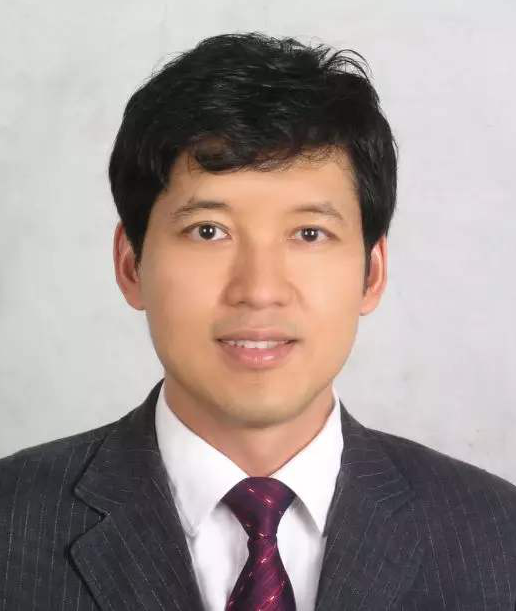
Jianwei Zhang
Affiliation: University of Hamburg,Germany
Subject: Cross-modal Learning for Robust Autonomous Robot Systems
Biography: B. Eng. (1986) M. Eng. (1989) Computer Science of Department of Computerscience, Tsinghua University, Beijing, VR China
Research Assistant at IPR (Institute of Real-Time Computer Systems and Robotics), Department of Computer Science of the University of Karlsruhe
PhD., University of Karlsruhe, 1994
Assistant Professor from October 1994 to September 2001
Professor from Oktober 2001 - Juli 2002 of the University of Bielefeld, Technical Faculty, AG TI
Since August 2003 Full-Professor at the University of Hamburg, Department of Computerscience and head of the institute 'Technical Aspects of Multimodal Systems' (TAMS)
Keynote Speech 2

Lihua Xie
Affiliation: Nanyang Technological University, Singapore
Subject: Cooperative Localization and Control of Multi-agent Systems
Abstract: The capability of localization is of great importance for many applications such as Internet of Things and operation of unmanned systems. GPS has been widely used for positioning and navigation. However, in indoor environments and many outdoor environments such as urban canon and forest, GPS may not be available or may be unreliable. Hence, there has been a lot of interest in developing technologies and algorithms for localization in such environments. In this talk, we shall discuss some recent research on this topic. We shall discuss localization leveraging on various technologies including WiFi, UWB and vision. In particular, we shall introduce recently developed consensus based and graph optimization based cooperative localization, leveraging on UWB technologies. We shall also discuss the integrative relative localization and formation control problem for multi-agent systems, and demonstrate their applications in unmanned ground and aerial vehicles.
Biography: Lihua Xie received the Ph.D. degree in electrical engineering from the University of Newcastle, Australia, in 1992. He was a faculty with the Department of Automatic Control, Nanjing University of Science and Technology from 1986 to 1989. Since 1992, he has been with the School of Electrical and Electronic Engineering, Nanyang Technological University, Singapore, where he is currently a professor and the Director of the Delta-NTU Corporate Laboratory for Cyber-Physical Systems. He served as the Head of Division of Control and Instrumentation from July 2011 to June 2014. His research areas include robust control, networked control, compressive sensing, localization and unmanned systems. He has published 9 books, over 420 journal papers and over 350 conference papers. He has been listed as a highly cited researcher by Thomson Routers and Clarivate Analytics since 2014. He is currently an Editor-in-Chief of Unmanned Systems and Associate Editor of IEEE Transactions on Control of Network Systems. He has served as an Editor of IET Book Series on Control and Associate Editor of IEEE Transactions on Automatic Control, IEEE Transactions on Control Systems Technology, Automatica, IEEE Transactions on Circuits and Systems-II, etc. He served as an appointed (2011) and elected (2016-2018) member of the Board of Governors of IEEE Control System Society. He is a Fellow of IEEE, Fellow of IFAC, and Fellow of CAA.
Keynote Speech 3

Shijun Guo
Affiliation: Cranfield University, UK
Subject: Agile and High Efficient Air Vehicles of Morphing and Multi-Mode Transforming Capability
Abstract: Air vehicles are normally designed most efficient at one point in a flight mode. Morphing and flight mode transforming technology offer a feasible approach for an air vehicle to achieve optimal performance at multi points and flight modes. This presentation demonstrates the development of micro and small air vehicles capable of morphing and flight mode transforming. It includes the research of developing a bird-like flapping-wing aircraft capable of short landing, an insect-like flapping wing rotor MAV, a morphing wing mechanism for small and large aircraft high lift devices, an eVTOL aircraft of tilt-wing. Prototype models and flight test are presented to demonstrate the feasibility and technology readiness. The presentation will end with a vision and challenges in the research field and further technology development.
Biography: Prof. Guo (MSc, PhD) is a FRAeS, FHEA, SMAIAA and CEng who is currently working at Cranfield University in UK and specialized in Aeroelasticity and Structural Dynamics especially Composite Structures. He has over 35 years work experiences in aerospace industry, research institute and number of UK universities. He has published 140 journal and conference papers, and has more than dozen patents in flapping wing and tilt-wing air vehicles and smart composite technology.
Prof. Guo has successfully completed many research projects funded by EPSRC, BAE Systems, MBDA, Airbus, Innovative-UK and Rolls-Royce, EC (FP7), EOARD/USAFRL, Embraer, Chinese NSFC and AVIC. He has a wide range of research interests and activities such as bio-inspired flapping wing MAV, morphing wing, aeroelastic tailoring of composite wings, smart composite structures, passive and active gust alleviation and flutter suppression of aircraft in different scales.
He keeps international research cooperation including Chinese academic and industrial partners, and acts as visiting professor such as BIT, Beihang University, Shandong University and Dalian University of Technology in China and a senior technical advisor in COMAC/BASTRI.
Keynote Speech 4

Xin Zheng
Affiliation: China Aerospace Science and Industry Corporation, China
Subject: The Challenge and Strategy for Navigation of Unmanned Systems
Abstract: With the development of modern warfare, unmanned system plays an increasingly important role in modern equipment. At the same time, there are three development trends of platform equipment towards unmanned, unmanned system towards intelligent and autonomous, and small unmanned system towards cluster and low-cost, which put forward higher requirements for navigation system. At present, the typical representatives of navigation system are inertial navigation and satellite navigation, but both of them have their advantages and disadvantages. It is difficult to meet the requirements of high precision, long-term navigation, full autonomy, small size and low cost navigation for all kinds of unmanned systems. Therefore, it is necessary to study high-precision inertial instruments and system technology to further improve navigation accuracy; develop new inertial instruments to reduce costs; develop full-source navigation capability to further enhance the integrated performance of navigation system.
Biography: Zheng Xin, researcher, has been engaged in the research and design of various inertial navigation systems for a long time. The type technology and products responsible for development and management are very representative in the inertial technology industry. They involve most of the typical supporting technologies and products in the field of inertial technology, ranging from positioning and orientation platform inertial navigation system, miniaturized high precision platform inertial navigation system, to laser gyro strapdown inertial navigation system and fiber optic gyroscope Strapdown Inertial Navigation System (SINS) and micro inertial instruments and systems. He has won three first-class and second-class prizes for national scientific and technological progress, two first-class prizes for national defense science and technology, and two first-class achievements in model development. They have been awarded the "511" academic and technological leader in national defense industry and the "millions of talents engineering in the new century" National experts title. He enjoys special government allowance.
Keynote Speech 5
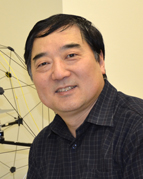
Youmin Zhang
Affiliation: Concordia University, Montreal, Canada
Subject: Recent Development on Fault Detection and Diagnosis (FDD), Fault-Tolerant Control (FTC), and Fault-Tolerant Cooperative Control (FTCC) of Unmanned Systems towards Practical Applications
Abstract: Although the concepts and developments on Fault Detection and Diagnosis (FDD) and Fault-Tolerant Control (FTC) have been progressively and extensively investigated worldwide since the 1970’s and 1980’s, respectively, the two recent catastrophic accidents induced by the crashes of two Boeing 737 MAX8 airplanes have highlighted again the necessity and urgency for FDD and FTC research & development and their practical applications. On the other hand, benefited from technical advances in materials, mechatronics, communication, computation, control, sensors, actuators and new/smart designs, Unmanned Aerial Vehicles (UAVs) are gaining more and more attention and rapid development during the last a few years due to their relatively easy and cost-effective uses in various application tasks such as surveillance, sensing, search and rescue, agriculture, forest, environment, pipelines, powerlines, military and security applications. In this talk, brief overall view on the challenges and latest developments on Guidance, Navigation, and Control (GNC) of UAVs integrating with Remote Sensing (RS) techniques for autonomous, efficient and reliable applications to forest and environment monitoring and fires/damages/risks detection will be presented first, then some of new developments and current research works being carried out at presenter’s group will be introduced as the second part of the presentation. In particular, recent developments on FDD, FTC, and Fault-Tolerant Cooperative Control (FTCC) techniques towards autonomous and reliable use of single and multiple UAVs to the above-mentioned practical applications (and also in wind farm as well as smart grids) will be introduced. New technical developments based on deep learning strategies for detection of fires/damages/risks using remotely sensed signals/images from onboard UAVs will also be presented.
Biography: Youmin Zhang received the B.S., M.S., and Ph.D. degrees from Northwestern Polytechnical University, Xi'an, China, in 1983, 1986, and 1995, respectively. He is currently a Professor with the Department of Mechanical, Industrial and Aerospace Engineering and the Concordia Institute of Aerospace Design and Innovation, Concordia University, Montreal, Quebec, Canada.
Dr. Zhang’s current research interests include condition monitoring, health management, Fault Detection and Diagnosis (FDD), andFault-Tolerant Control (FTC), cooperative Guidance, Navigation, and Control (GNC) of single and multiple unmanned aerial/space/ground/surface vehicles and their applications to forest fires, pipelines, power lines, environment, natural resources and natural disasters monitoring, detection, and protection by combining with remote sensing techniques; dynamic systems modeling, estimation, identification, advanced control techniques and signal processing techniques for diagnosis, prognosis, and health management of safety-critical systems, renewable energy systems and smart grids, and intelligent manufacturing processes. He has authored 4 books, over 500 highly cited journal and conference papers, and book chapters.
Dr. Zhang is a Fellow of Canadian Society of Mechanical Engineering (CSME), a Senior Member of AIAA and IEEE, President of International Society of Intelligent Unmanned Systems (ISIUS), Executive Committee Member of International Conference on Unmanned Aircraft Systems (ICUAS), Steering Committee Member of International Symposium on Autonomous Systems (ISAS), and a member of the Technical Committee for several international and national scientific societies. He has been invited to deliver plenary and tutorial talks at international conferences/workshops and research seminars worldwide for over 100 times. He has been an Editor-in-Chief, an Editor-at-Large, an Editorial Board Member, and Associate Editor of several international journals. He has served as General Chair, Program Chair, General/Program Co-Chair of several international conferences, including currently as General Chair of the 2020 International Conference on Unmanned Aircraft Systems (ICUAS’20) to be held at Athens, Greece during June 9-12, 2020 (www.uasconferences.com). More detailed information can be found at http://users.encs.concordia.ca/~ymzhang/.
Keynote Speech 6
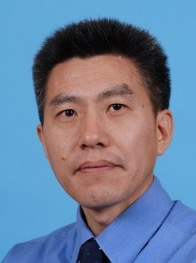
Zhengtao Ding
Affiliation: University of Manchester, UK
Subject: Multi-Agent Systems and Formation Control
Abstract: In this network-connected world, many tasks require coordination and cooperation of subsystems/agents via network connection. Multi-agent systems are good examples of interplay between network communication and control applications. This talk will briefly review some fundamental concepts of multi-agent systems and important developments in algorithms and applications. It will then focus on formation control and optimal coverage with autonomous systems. In particular, the talk will cover in details of some important methods, such as affine and bearing-only formation control algorithms which rely on the stress matrices and bearing. It will also briefly touch on some other related techniques, such as state estimation for formation control etc.
Biography: Zhengtao Ding received B.Eng. degree from Tsinghua University, Beijing, China, and M.Sc. degree in systems and control, and the Ph.D. degree in control systems from the University of Manchester Institute of Science and Technology, Manchester, U.K. After working as a Lecturer with Ngee Ann Polytechnic, Singapore, for ten years, he joined the University of Manchester in 2003, where he is currently Professor of Control Systems with Department of Electrical and Electronic Engineering. He is the author of the book: Nonlinear and Adaptive Control Systems (IET, 2013) and has published over 260 research articles. His research interests include nonlinear and adaptive control theory and their applications, more recently network-based control, distributed optimization and distributed learning, with applications to power systems and robotics. Prof. Ding has served as an Associate Editor for the IEEE Transactions on Automatic Control, IEEE Control Systems Letters, Transactions of the Institute of Measurement and Control, Control Theory and Technology, Mathematical Problems in Engineering, Unmanned Systems, and the International Journal of Automation and Computing, etc. He is a member of IEEE Technical Committee on Nonlinear Systems and Control, IEEE Technical Committee on Intelligent Control, and IFAC Technical Committee on Adaptive and Learning Systems.
Keynote Speech 7
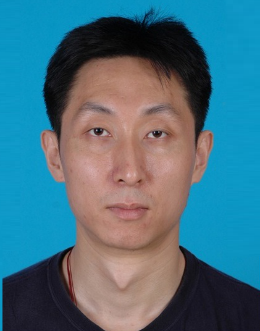
Hao Fang
Affiliation: Beijing Institute of Technology, China
Subject: Shared Control Design for Multi-Robot Systems
Abstract: For the manned-unmanned systems, shared control provides an important means that allows human operators to cooperate with multiple robots. In this talk, three shared controllers are introduced which aim to solve the key issue of how to intervene with several robots simultaneously under emergent condition, three challenging issues such as simultaneous intervention, facilitating interaction and flexible response are mainly concerned. The fundamental theoretical analysis guaranteeing the system stability is given, several simulation and experimental tests are presented to verify the effectiveness of the proposed shared control.
Biography: Hao Fang received the B.S. degree from the Xi’an University of Technology, in 1995, and the M.S. and Ph.D. degree from the Xi’an Jiaotong University, in 1998 and 2002, respectively. He held two postdoctoral appointments at the INRIA/France research group of COPRIN and at the LASMEA (UNR6602 CNRS/Blaise Pascal University, Clermont-Ferrand, France). Since 2011 he has been a professor at Beijing Institute of Technology. His research interests include multi agent systems, robotic control and parallel manipulators.
Keynote Speech 8
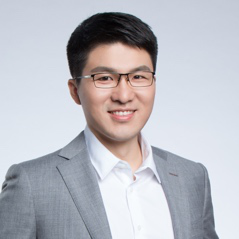
Wei Pan
Affiliation: Technische Universiteit Delft, Netherlands
Subject: Towards Statistical Learning Control
Biography: Dr. Wei Pan is an Assistant Professor at the Delft University of Technology, in the Department of Cognitive Robotics. Until May 2018 he was a Project Leader at DJI for two years, working on machine learning and applications for commercial drones. Dr. Pan received his Ph.D. (2017) in System Identification from Imperial College London. Dr. Pan obtained bachelor’s degree in Control Engineering (2008) from Harbin Institute of Technology and master’s degree in Biomedical Engineering (2011) from University of Science and Technology of China respectively. Dr. Pan is the recipient of Dorothy Hodgkin Postgraduate Award, Microsoft Research Scholarship, Shenzhen Peacock Award, Chinese Government Award for Outstanding Self-financed Students Abroad. Since June 2019, Dr. Pan is also a member of Huawei Munich Device Software Lab.
Keynote Speech 9
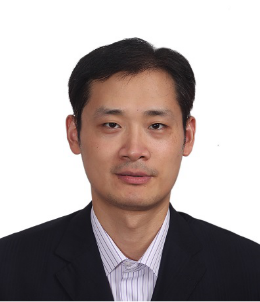
Xin Xu
Affiliation: National University of Defense Technology, China
Subject: Advances in Learning Control Techniques for Intelligent Unmanned Systems
Biography: Prof. Xin Xu received the B.S. degree in electrical engineering from the Department of Automatic Control, National University of Defense Technology (NUDT), Changsha, P. R. China, in 1996 and the Ph.D. degree in control science and engineering from the College of Mechatronics and Automation (CMA), NUDT. He has been a visiting scientist for cooperation research in the Hong Kong Polytechnic University, University of Alberta, University of Guelph, Russian Academy of Sciences and the University of Strathclyde, respectively. Currently, he is a full Professor with the College of Mechatronics and Automation, NUDT.
His main research areas include: reinforcement learning and approximate dynamic programming, learning control, robotics and intelligent vehicles, machine learning and data mining. He has coauthored four books and published more than 150 papers in international journals and conferences. He is the founding co-Editor-in-Chief of Journal of Intelligent Learning Systems and Applications (with Prof. Haibo He) and the founding associate Editor-in-Chief of CAAI Transactions on Intelligence Technology. He has served as an Associate Editor or Guest Editor of Information Sciences, IEEE Transactions on Systems, Man and Cybernetics: Systems, International Journal of Adaptive Control and Signal Processing, International Journal of Social Robotics, Intelligent Automation and Soft Computing, Acta Automatica Sinica.
Prof. Xu is one of the scientists who received the 2nd class National Natural Science Award of China in 2012, the 1st class Natural Science Award from Hunan Province, P. R. China, in 2009 and the Fork Ying Tong Youth Teacher Fund of China in 2008. He is a Senior Member of IEEE, a Committee Member of the IEEE Technical Committee on Approximate Dynamic Programming and Reinforcement Learning (ADPRL) and the IEEE Technical Committee on Robot Learning.